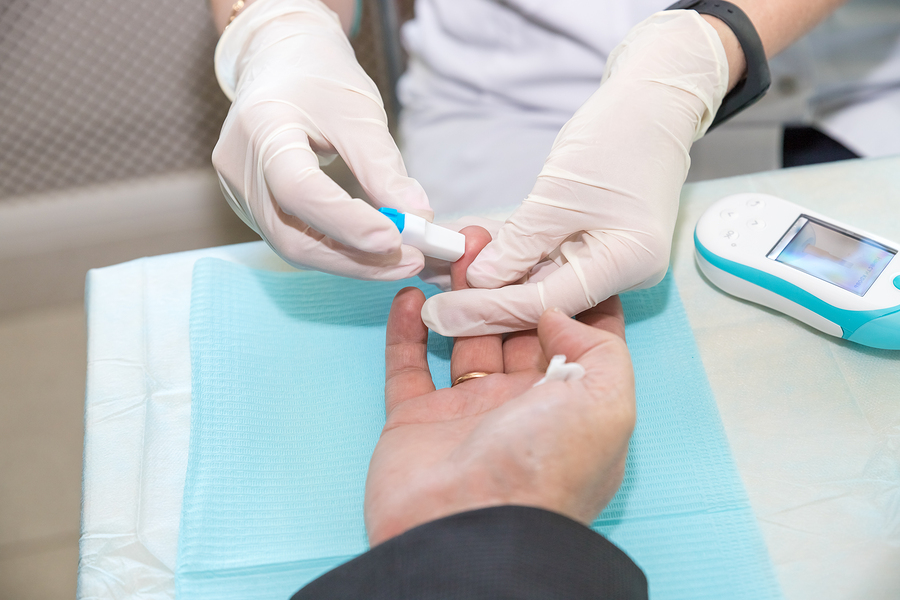Warfarin, Tinzaparin and INR explained
Here we take a look at anticoagulants, give an explanation of INR and explain which factors can affect your readings.
Warfarin and how it works
Warfarin is used in many conditions where there is a risk of blood clot. It is an anticoagulant and has been taken successfully in the UK for many years. Warfarin is used to prevent clots occurring in conditions such as deep vein thrombosis, pulmonary embolisms, atrial fibrillation and heart valve replacements.
Warfarin works by blocking the action of vitamin K in the liver. When we cut ourselves our body sets into motion a complex chain of protein changes in order to plug the cut with a clot. These blood proteins are known as coagulation factors and require vitamin K for these changes to take place. By blocking vitamin K, Warfarin decreases the body’s tendency to form clots and acts to prolong the bleeding.
Warfarin prevents strokes, heart attacks and clots in the lungs by stopping existing clots increasing in size and by preventing any new clots from forming.
Anyone taking Warfarin must be monitored very closely as uncontrolled bleeding can be fatal. The way of measuring how much anticoagulation is occurring in the body is expressed as INR.
INR explained
INR – or International Normalised Ratio – is how we measure the length of time it takes for a certain amount of blood to clot in someone taking Warfarin compared to how long the same amount of blood takes to clot in an average person not taking Warfarin. For example, if your INR has a reading of 4 then it takes four times as long for your blood to clot compared to an average person.
The higher the INR, the greater risk of bleeding and the lower the INR, the greater possibility of a clot forming – so it is crucial for someone taking Warfarin to be within the target INR limits.
If your INR is too low then your medical professional may decide to increase your dose of Warfarin, if it is too high then you may be prescribed vitamin K to bring it down.
Can INR readings sometime be erratic?
INR readings can be affected by many things, these include:
- A sudden change in diet – A drastic change in the amount of vegetables you eat can affect the amount of vitamin K entering the body. Large amounts of vitamin K is found in spinach, broccoli, Brussel sprouts, avocado and other vegetables and fruits such as berries and figs. It is sensible to eat the same amount of vegetables each day in order to keep your INR stable.
- Alcohol consumption – Moderate drinking is advised whilst on Warfarin. The NHS limits are 14 units per week for both men and women.
- Cranberry juice
- Taking other medication – Certain medication, including anti-biotics, can affect your INR. Non-steroidal anti-inflammatories such as Ibuprofen should not be taken whilst on Warfarin and Paracetamol may also affect your INR. You should always check with your pharmacist or doctor if you take any new medication.
- Food supplements and herbal medication – you must check with your pharmacist or doctor before you start taking any herbal medication or supplements as your INR levels can be adversely affected. Ginko biloba my increase your risk of bleeding for example and ginseng, garlic tablets and St John’s Wort may reduce your blood levels of Warfarin.
Tinzaparin and how it works
Low molecular weight heparin, or LMWH, such as Tinzaparin can enhance the effect of certain coagulation factors and in this way prevent clots. LMWH are given as injections and each dose is specific to each patient. Tinzaparin is usually injected into the tummy once or twice a day but not generally given on a long-term basis as it may lower platelets.
As all LMWH are derived from pork, an alternative anticoagulant called Fondaparinux can be offered to those people who cannot use pork derived products.
Alternatives to Warfarin
Some alternatives to Warfarin, known collectively as NOACs, have recently been introduced: Dabagatrin, Rivaroxaban, Apixaban and Endoxaban. If you have mechanical valves however, these are not licensed to be used to prevent clots in that instance.
Click here to read more articles on heart health.
For further information about Warfarin visit the NHS website.
Disclaimer
All content on Silversurfers.com is provided for general information only, and should not be treated at all as a substitute for the medical advice of your own doctor or any other health care professional. Silversurfers will not be responsible or liable for any diagnosis made by a user based on the content on www.silversurfers.com and we are also not liable for the content of any external websites or links from or to Silversurfers to any other websites. Please always consult your own doctor if you’re in any way concerned about any aspect of your health
Melina - Assistant Editor
Latest posts by Melina - Assistant Editor (see all)
- By yourself at Christmas this year? Tips on how to manage alone - December 16, 2024
- The Silversurfers, just for fun, Christmas Quiz! - December 14, 2024
- 10 potential hazards for pets at Christmas - December 10, 2024
- Christmas Spiced Blueberry Panettones - December 1, 2024
- Three must have toys of the late 60’s - November 24, 2024




















